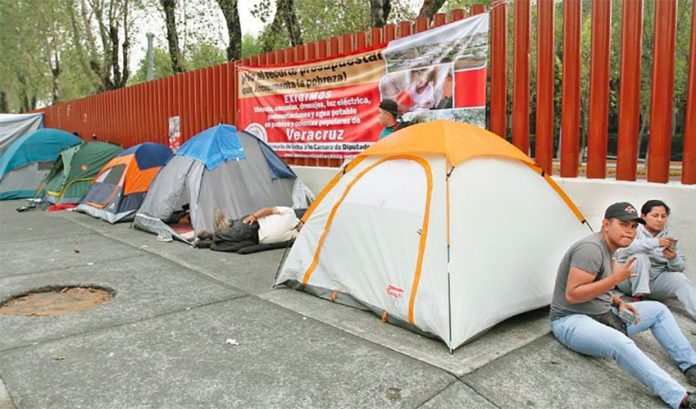The federal government’s new farm support policy has both positive and negative aspects, according to a social development expert.
Rodolfo de la Torre, a director at the Espinosa Yglesias Study Center (CEEY), a Mexico City think tank, told the newspaper El Economista that one positive aspect of the policy is that it intends to use satellite imagery that measures the size of a property to determine how much government support, if any, a farmer is eligible to receive.
“This mechanism is rigorous and beneficial because it will get rid of . . . farmers who said they had more land than they did. There was no way to verify it. Some of those farmers are the ones who . . . are protesting [against the policy],” he said.
Unlike a previous farm support policy, President López Obrador’s model sets a limit on the size of farms that can receive government support, de la Torre said.
Subsidies will only be provided to farmers on irrigated land if the size of their property is six hectares or less – financial aid was previously given to farms up to 100 hectares – while support for farmers on non-irrigated land will only be granted if their property doesn’t exceed 20 hectares, he said.
“This means that they’re cutting the register . . . [A lot of farmers] won’t receive the subsidy anymore, that’s being reflected in the protests at San Lázaro [the lower house of Congress]. It’s not the small-lot farmers that are coming to protest but the medium-size farmers . . . They’re going to be left off the register,” de la Torre said.
The CEEY director added that “the bad thing about this new farm support policy is that the register wasn’t put together well.”
De la Torre claimed that the government might have included “people who are not necessarily deserving of support.”
He was also critical of the government’s guaranteed price scheme for five agricultural products, arguing that it removes the incentive for unproductive farmers to improve their practices.
José Luis de la Cruz, director of the Institute for Industrial Development and Economic Growth, said the government should implement a more comprehensive farm support policy that allocates resources based on the needs of each agricultural sub-sector.
Some sub-sectors have become very successful as a result of exporting to the United States whereas others have not, he said.
De la Cruz argued that farmers who have already found a market in the United States – many avocado growers, for example – don’t need government support while many small farmers who don’t export and haven’t adopted new farming technology do require financial aid.
Farmers have been blocking the House of Deputies for more than a week with a camp outside the legislative precinct.
Source: El Economista (sp)
